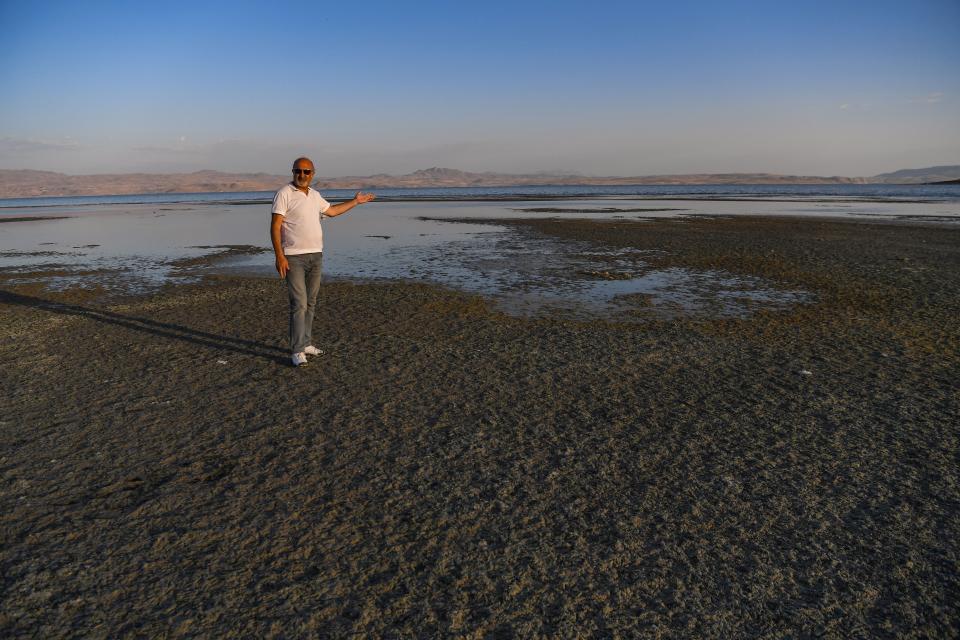Turkey's largest lake is drying up because of drought, leaving behind stinky, polluted mud and causing a 'bird massacre'
Turkey's Lake Van has been drying up due to rising temperatures and drought.
The retreating water line is exposing stinky, polluted mud and killing off birds in droves.
And it's only just the beginning of the lake's woes, a local professor told the AFP.
Lake Van, the largest body of water in Turkey and the second largest in the Middle East, is drying up — and its retreating water line is leaving behind stinky, polluted mud and causing a "bird massacre," locals told the Agence France-Press.
An intensifying drought in the region and rising temperatures are largely to blame, the AFP reported.
The saltwater lake has lost 1.5% of its total surface area in recent years, a "terribly large amount of water," Faruk Alaeddinoğlu, a professor at Van Yuzuncu Yil University, which sits on the lake's shore, told AFT. Alaeddinoğlu told AFP that the lake's water evaporates at nearly three times the rate that rainfall can replenish it.
And all that newly exposed barren land is dredging up years of pollution.

"Large patches of slime mixed with mud give off a bad smell and make human pollution more evident," Orhan Deniz, another professor at Yuzuncu Yil University, told the AFP.
"In the 1990s, we would swim during lunch break and then go back to university," he added. "Now it's not possible to step in the water, let alone swim in it."
Drought in the region has also caused a type of fish called pearl mullets to migrate away from the area earlier than usual — and as a result, the gulls that feed on the mullets have been dying in droves, littering the lake's shores with bones and carcasses, AFP reported.

"In the past, the seagulls would follow us while we were swimming. Now look, it's a bird massacre," Necmettin Nebioglu, a local villager, told the AFP.
Some sections of the lake have been drying up faster than others — the Celebibagi neighborhood on the northern shore, for example, has already lost almost two and a half miles of shoreline, the AFP reported.
"Now it's a barren land without a living thing," local environmentalist Ali Kalcik told the AFP.
The drought is also bringing microbialites — sedimentary deposits made of mud — to the surface as the lake dries up, the Hurriyet Daily News reported in January.

The formations, referred to by some locals as "underwater fairy chimneys," resemble fragile coral reefs, the Hurriyet Daily News reported.
The Daily Sabah reported that the structures date back some 800,000 years, and, in years past, been a source of diving tourism for the region.
And without water, the microbialites turn in to rocky structures that can easily crumble.
And Lake Van is not alone — other bodies of water around the world have been drying up as a result of climate change.
Nevada's Lake Mead lost a chunk of its water last summer thanks to rising temperatures and drought — so far exposing at least three long-lost dead bodies.
Forensic anthropologists say more skeleton remains could turn up as Lake Mead continues to recede.
Read the original article on Insider

 Yahoo News
Yahoo News 
